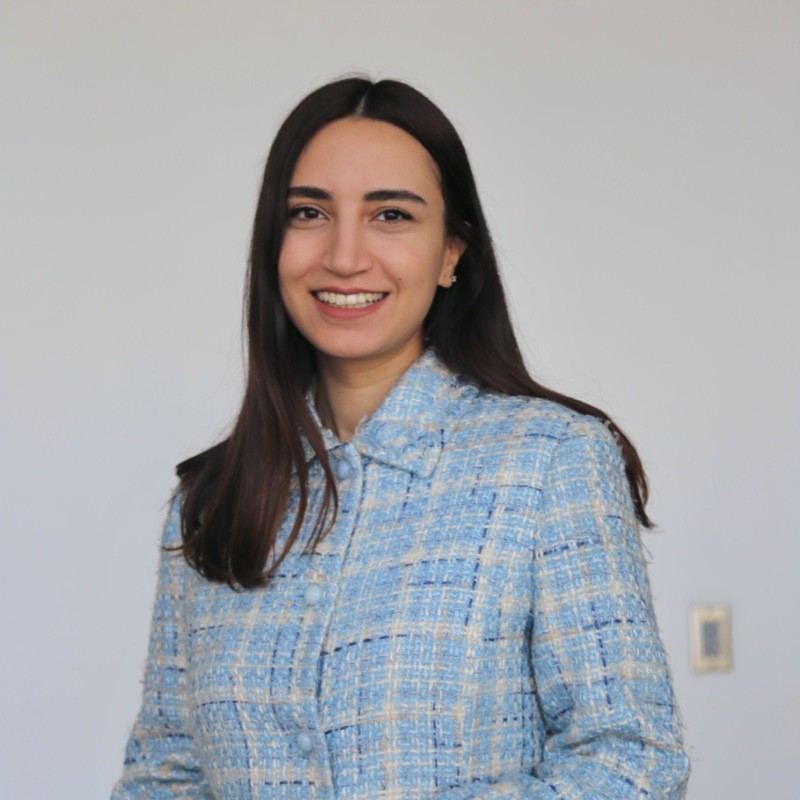Seda Yasa
Seda Yasa
Seda Yasa
Postdoctoral research fellow, Neurology, Harvard Medical School
Ph.D. in Biology, 2022

“Without adequate financial support, it is almost impossible to do research. I have been extremely fortunate to have the support of INRS through scholarships and awards. This has allowed me to focus on my research work.”
Interested in lysosomal storage disorders and neurodegenerative diseases, Seda Yasa was immediately drawn to the research work of Professor Stéphane Lefrançois of the Centre Armand-Frappier Biotechnologie. With his team in Laval, the researcher is studying the cell biology of the CLN3 protein to better understand its function and find therapeutic targets. He and his team are working on Batten disease, a rare genetic and degenerative disease that affects mostly children.
She then decided to leave her native Turkey to pursue her studies at INRS. For five years, Seda Yasa researched the role of CLN proteins in intracellular trafficking pathways in order to develop new therapeutic avenues for lysosomal storage disorders. The most common form of childhood dementia, Batten disease, is caused by mutations in the CLN3 gene. Patients usually die before the age of 30. The exact function of the CLN3 protein is still unknown, making the underlying pathophysiological mechanism unclear.
Dr. Yasa considers that the training she received at INRS, and more particularly the work she did in collaboration with Professor Lefrançois, enabled her to take giant steps forward in her field. She recalls her years at INRS as very intense. She adds that you have to be determined to succeed. Thanks to scholarships from INRS, including the International Outreach Award, participation in international conferences and winning an award for best presentation at an international conference, Seda was invited to give a talk at several international conferences and symposia during her studies. These opportunities allowed her to meet leaders in her field of expertise and to build a strong network of contacts. Her thesis supervisor also has a big collaborative network that provided her direct access to sources. She adds: ‘Professor Lefrançois provided me with very constructive feedback on my scientific writing skills that I published two papers in top-tier journals. In this respect, I thank him for being a fantastic supervisor. Not only did he provide me with a healthy work environment, but he also shared his vast knowledge, which helped me improve my scientific skills. Dr. Yasa also recalls, “I would like to mention that the location of the Armand-Frappier Biotechnology Centre, located in the heart of the Biotech City in Laval, is a great place to do innovative work. The equipment and laboratories available to students are state-of-the-art and make their work much easier.ʺ
Seda Yasa is currently working as a postdoctoral fellow in the neurological laboratory at the Center for Genomic Medicine at Harvard Medical School, on the same disease she studied during her PhD. There she continues her work and hopes to find a cure for this disease, either in industry or academia.
She believes that it is important to surround yourself with people who want to succeed. This has been a great source of motivation for her: “It is not always easy to stay motivated. You should never lose sight of what motivates you,” she says. “For me, doing science is about contributing to the betterment of society. Doing a PhD is a way of life, you have to be aware of your life and work habits to persevere,” she adds.
Seda Yasa has already published several research papers. She was interviewed for the Journal of Cell Science, which helps, among other things, early career researchers to promote themselves and their papers. She feels that her training, combined with her determination, skills and knowledge, are valuable assets that will be essential throughout her career. We wish her every success in all her endeavours.
Interviewed in June 2022
